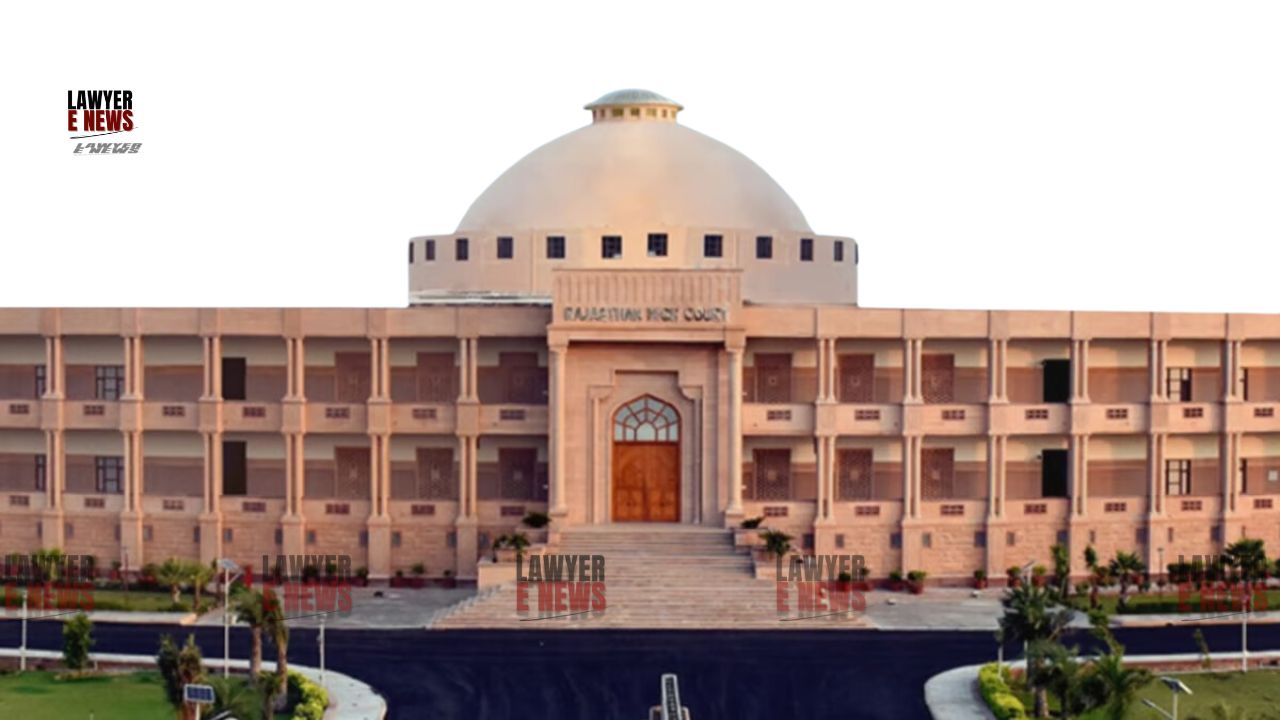-
by sayum
14 February 2026 2:22 PM



Petition under Section 482 Cr.P.C. dismissed, emphasizing trial court's discretion under Section 91 Cr.P.C. In a recent judgment, the Rajasthan High Court dismissed a criminal miscellaneous petition filed under Section 482 of the Cr.P.C. by Ajay Joshi, who sought to summon the original agreement related to a Rs. 20 lakh cheque bounce case. The court upheld the lower court's discretionary power in deciding the necessity of documents for a fair trial, reinforcing the procedural autonomy granted to trial courts.
Facts of the Case: Ajay Joshi, aged about 40 years, issued a cheque for Rs. 20 lakh to Shyam Singh Gehlot, aged about 68 years, which was subsequently dishonored by the bank. In response, Gehlot filed a complaint under Section 138 of the Negotiable Instruments Act, 1881, before the Special Metropolitan Magistrate (N.I. Act Cases) No. 7, Jodhpur. During the proceedings, Joshi filed an application on September 18, 2018, under Section 91 of the Cr.P.C., requesting the court to summon the original agreement dated May 14, 2014. Joshi argued that examining the ink used for signatures on the original document could reveal discrepancies, as the ink on the certified copy appeared different. The trial court rejected this application on October 12, 2018, leading Joshi to seek relief from the High Court.
Discretionary Power under Section 91 Cr.P.C.: Justice Kuldeep Mathur noted that the trial court's power under Section 91 of the Cr.P.C. is discretionary and should be exercised only when deemed necessary for a fair trial. The judgment emphasized, "It is for the complainant to decide in what manner he would like to prove his case," stressing the autonomy of the prosecution in presenting evidence.
Evaluation of the Agreement: The trial court had already examined a certified copy of the agreement, finding all entries visible and no explicit allegations of forgery from the accused. Justice Mathur stated, "Manifestly thus, in the present case, it is not clear from the application filed by the accused-petitioner under Section 91 Cr.P.C., that merely because the original ink used for making entries in the agreement is not visible, as to how the same would be useful in deciding the criminal original case."
Reaffirmation of Lower Court's Decision: The High Court affirmed the trial court's decision, indicating no error or mistake in dismissing the application. Justice Mathur concluded, "The learned trial court has not committed any mistake or error in dismissing the application of the petitioner preferred under Section 91 of Cr.P.C."
Justice Kuldeep Mathur remarked, "The powers available to the learned trial court under Section 91 Cr.P.C. are discretionary in nature. Such powers are to be used only when the learned trial court deems it necessary or desirable that production of a document would be useful for the fair trial of a case pending before it."
The Rajasthan High Court's ruling underscores the importance of judicial discretion in procedural matters and supports the autonomy of trial courts in determining the relevance and necessity of documents for a fair trial. This judgment highlights the court's role in ensuring that procedural requests do not impede the efficient administration of justice, particularly in cheque bounce cases under Section 138 of the N.I. Act.
Date of Decision: May 29, 2024
